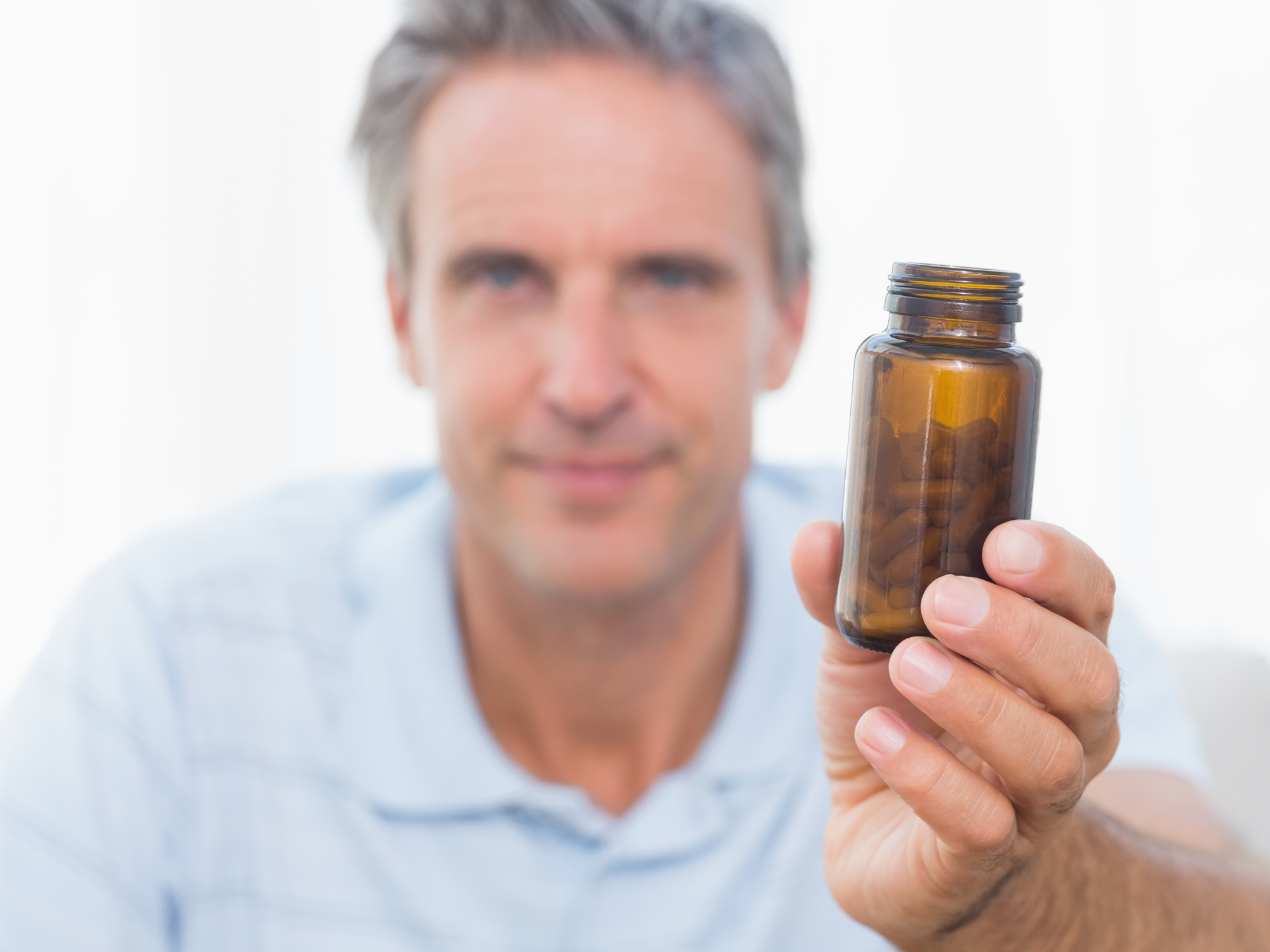Get Easy Health Digest™ in your inbox and don’t miss a thing when you subscribe today. Plus, get the free bonus report, Mother Nature’s Tips, Tricks and Remedies for Cholesterol, Blood Pressure & Blood Sugar as my way of saying welcome to the community!
Do multivitamins do men more harm than good?

Millions of men in America take a multivitamin daily…
Yet it appears they may be wasting their time and money as well as fooling themselves into believing they are doing something good for their health.
At least, that’s part of the story from a recent research paper appearing in the Journal of the American Medical Association Cardiology…
Multivitamins for men and heart health
Previous research that followed-up more than 13,000 men for more than 11 years has shown that those who took multivitamins did not experience a reduction in their risk of heart disease when compared with their peers who took a placebo. In the more current study, researchers examined data from this ongoing study and looked at participants who had followed a “nutritionally challenged” diet.
According to the new report, daily use of multivitamins did not result in a lower risk of heart disease even among the participants who had followed a poor diet. The authors concluded that “baseline nutritional status does not influence the effect of randomized long-term multivitamin use on major CVD [cardiovascular] events.”
More research into the role of multivitamins in men’s health is needed, especially to determine whether occasional use of these supplements may be helpful to help take care of any nutritional shortfalls. For now, it isn’t clear whether they can serve this purpose — and when it comes to male health, there is concern that they may do more damage…
Multivitamins for men and prostate cancer
Excessive use of multivitamins/multiminerals (“multis”) has been associated with an increased risk of prostate cancer.
This warning is based on a large study in which researchers evaluated 395,344 men who were cancer-free when they enrolled in 1995 and 1996. Over the next five years, 10,241 men were diagnosed with prostate cancer: 8,765 men had localized disease and 1,476 had advanced prostate cancer. A separate analysis was done over six years to evaluate mortality, and 179 men were found to have fatal prostate cancer in this arm of the study.
Overall, when the researchers compared the men who did not use multivitamins excessively, there was no increased risk of localized prostate cancer.
But when men who used multis more than seven times a week were compared with those who never used the supplements, the investigators saw an increased risk of both advanced and fatal prostate cancers. The increased risk was greatest among men who took individual micronutrient supplements, including carotene, selenium, and zinc, as well as high levels of multivitamins.
What about nutritional concerns?
Certainly, at least when it comes to male health, it appears the use of multivitamins is questionable. But there are some questions about the vitamins we take…
According to my colleague, Dr. Michael Cutler, pharmacy shelves are lined with synthetic vitamins made from chemical processes rather than being derived from health-promoting plants or other natural sources. Most people are not aware that many of these synthetic vitamins, including some widely advertised “name brands,” are processed at high temperatures, which destroys their nutrient content.
Also, synthetic vitamins often just contain a fraction of the entire vitamin complex. In fact, most popular “vitamin C” supplements contain only ascorbic acid, the protective outer shell of vitamin C. By contrast, real vitamin C from fruits, vegetables, and herbs contains eight different components. The takeaway is synthetic vitamins and minerals aren’t optimal in supplement form— or any other form for that matter.
But, Dr. Cutler says, there are a plethora of studies proving the long-term health benefits of consuming nutrients in the form of fruits, vegetables, and other high-fiber whole foods.
In a Harvard study, researchers tracked over 120,000 men and women for up to 14 years, watching for new heart attacks. They found that, for every additional serving of a fruit or vegetable per day, the risk of coronary heart disease decreased by 4%. This translates to a 36% lower heart attack rate if the subjects ate the recommended nine servings of fruits and veggies per day.
So there’s no questions the nutrients can help. The question is about getting them the best way.
Sources:
- Lawson KA et al. Multivitamin use and risk of prostate cancer in the National Institutes of Health — AARP Diet and Health Study. J Natl Cancer Inst 2007 May 16; 99(100: 754-64
- Rautiainen S et al. Effect of baseline nutritional status on long-term multivitamin use and cardiovascular disease risk: a secondary analysis of the Physicians’ Health Study II randomized clinical trial. JAMA Cardiology 2017; 2(6): 617-25












